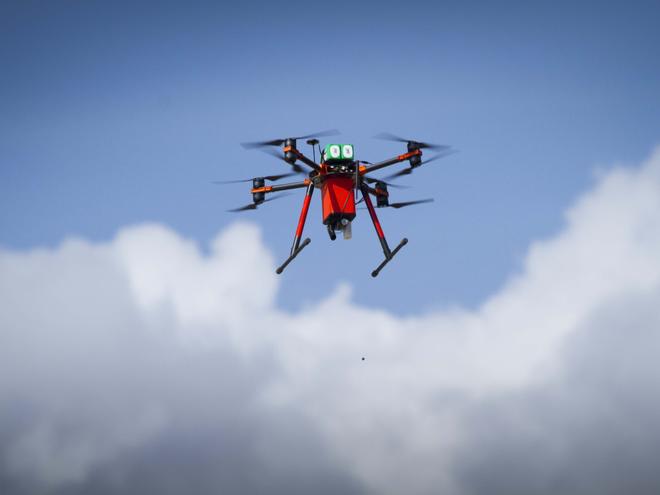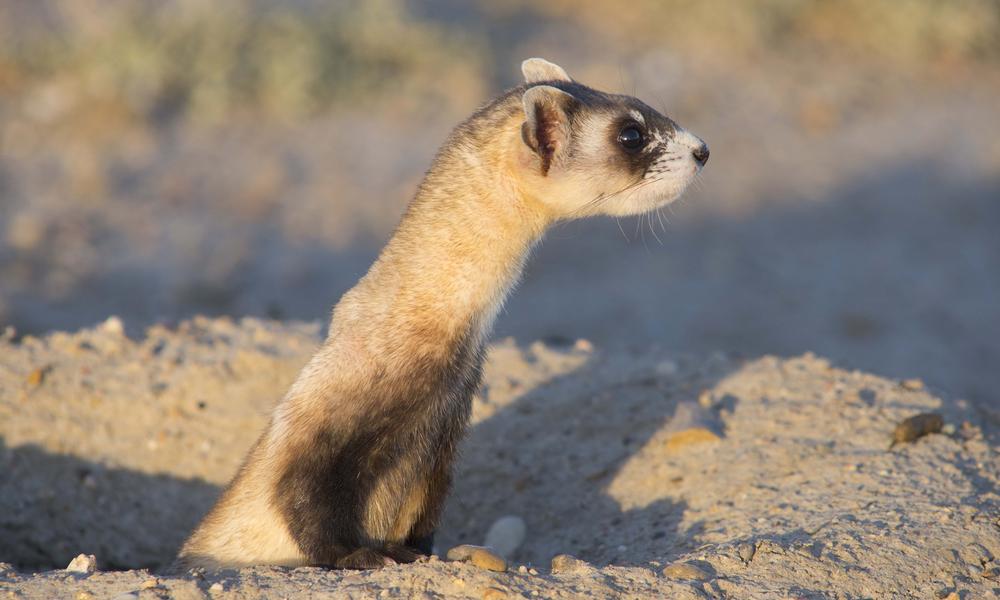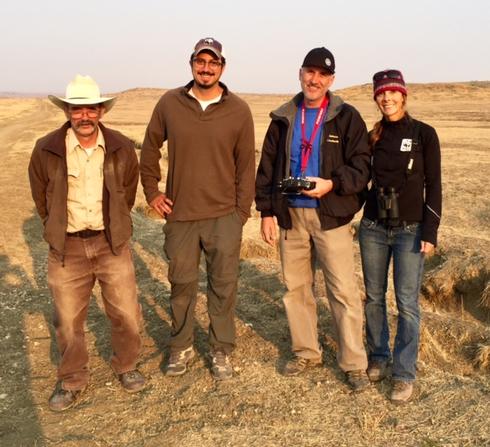
Restoring populations of imperiled wildlife species requires teamwork, innovation, and perseverance. In the case of the endangered black-footed ferret, sylvatic plague—a non-native disease—is the primary threat to their survival and that of their prairie dog prey. After years of trial and error, WWF, U.S. Fish and Wildlife Service, and Model Avionics developed an innovative system to deliver plague protection in the form of peanut butter-flavored baits by drones or all-terrain vehicles to prairie dogs. Recently, the team received a patent for the design—a first for WWF!
Prairie dog survival essential to black-footed ferret recovery

In the Great Plains of North America, black-footed ferrets rely on prairie dogs for food and use their burrows for shelter and raising young. Both black-footed ferrets and prairie dogs are highly susceptible to sylvatic plague, which is transmitted by fleas infected with the plague bacterium. Preventing the occurrence of plague in populations of both species annually is therefore essential to their survival.
An injectable vaccine is available to protect black-footed ferrets from the plague but isn’t available to prairie dogs. The most commonly used tool to mitigate plague in prairie dogs is a flea-suppressing dust insecticide that is put into their burrows. Although this dust is effective in conserving prairie dog populations, it is labor-intensive to distribute it and fleas can develop resistance to it when it is applied in the same burrows consecutively for six years.
Another tool used to combat this deadly disease in prairie dogs is vaccine-laced peanut butter-flavored baits. When the vaccine baits were initially developed, no efficient system existed to distribute them over thousands of acres of prairie dog colonies. This is where the partnership between WWF, U.S. Fish and Wildlife Service, and Model Avionics began.
Development of the new bait delivery system

The team (from left): Randy Matchett (USFWS), Eric Becker (WWF), Kurt Kreiger (Model Avionics) and Kristy Bly (WWF).
In 2016, the team developed the first prototype of a mechanized bait delivery system that dropped three baits simultaneously from a drone and an all-terrain vehicle. Over the next year, the prototype was tested across several thousand acres of prairie dog colonies in Montana, South Dakota, Wyoming, Colorado, and Arizona and subsequently fine-tuned. In 2017, the team submitted a patent application and in 2019, the patent was awarded! There now exists an effective means in which to deploy sylvatic plague protecting baits to prairie dogs to advance recovery of one of North America’s rarest mammals—the black-footed ferret.
Our work moving forward
WWF and partners will continue to improve the design, including adding a bait counter and an alert system in the event of a bait jam and will improve the field durability of the all-terrain vehicle bait delivery system. With only around 340 black-footed ferrets left in the wild, and at least 3,000 breeding adults needed to achieve national recovery goals, plague abatement in both black-footed ferrets and prairie dogs is key to the survival and persistence of both species.
Learn more about black-footed ferrets.
Enviroshop is maintained by dedicated NetSys Interactive Inc. owners & employees who generously contribute their time to maintenance & editing, web design, custom programming, & website hosting for Enviroshop.
